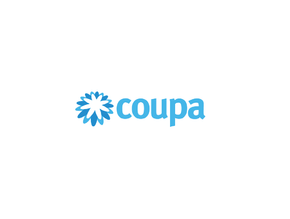Adopting an Effective Procurement Platform 101

Following the disruption of COVID-19, organisations are recognising procurement’s role in restoring growth and ensuring resilience. “Now we are seeing more investment in smart, cloud-based procurement platforms that help businesses pivot from survival to growth mode,” says Alex Saric, smart Procurement Expert at Ivalua.
As procurement departments become increasingly digitally driven, using the likes of electronic CFTs, supplier collaboration, RPA, and catalogue buying, more and more companies are releasing the significance of digital transformation and the need to optimise their services accordingly.
“A key trend in the procurement space is the integration of a contract lifecycle management (CLM) platform. While procurement platforms have made improvements in tracking purchasing activity against budgets and in running sourcing events, they have been unable to achieve the full potential of end-to-end digitisation. Contracts are at the centre of procurement, they define what a business buys and on what terms, including SLAs, specs, and pricing models. An advanced CLM supports compliance tracking, strategic sourcing, spend analytics, business intelligence and supply-chain data management, meaning it is the ideal pillar around which to deploy a holistic, digital approach to procurement to meet the demands of today’s marketplace,” explains Simon Patteson VP of Northern Europe at Icertis.
When Should an Organisation Adopt a Procurement Platform?
“Organisations should look to adopt a procurement platform at the earliest possible opportunity,” says Patteson.
“The World CC report found that there is an increasing gap between organisations who do not prioritise procurement resources such as Commercial and Contract Management (CCM) platforms and those who do. Larger organisations – those with annual revenue of more than US$5bn – are showing the greatest interest in improving CCM capabilities, with these sectors leading the way which may largely be down to risk,” he continues.
“Plus, according to Forrester, CLM has emerged as a must-have technology for companies of all sizes. Manufacturing is a key sector that could see huge benefit from increased digitisation through a CLM platform, where production time and customer communication is of the utmost importance. With its digitisation and integrated technologies CLM has the potential to address an interface where there can be significant value leakage and risk accumulation when responsibilities are split.”
Adding to Patterson’s comments, Saric details what it takes to achieve an effective transformation journey in procurement. “An effective transformation journey can only begin once an organisation has mapped out its digital maturity. Before adopting a procurement platform, procurement teams must review their company strategy, processes, structure, and technology against leaders in the industry to gauge maturity and identify areas for improvement.
“Pre-packaged solutions can be a great start, helping you to deploy effective procurement tools in just a matter of weeks. However, scalability and flexibility are also important to consider as it enables the solution to grow with the company and adapt quickly to both short and long term changes in the market. Smart procurement technology brings long-term cost and efficiency benefits to organisations. The added visibility given across the supply chain is critical for firms looking to stay ahead of the curve and make informed decisions, spot new opportunities, and manage risk. These platforms will give organisations a significant competitive advantage, so they need to be investing now – or risk lagging behind competitors, losing market share and missing vital chances to innovate.”
The Benefits of Adopting a Procurement Platform in Your Organisation?
“We are consistently seeing both in the news and in our business how fragile just-in-time delivery can be. Thanks to the pandemic cutting production, growing consumer trends impacting traditional labour supplies, and regional challenges (such as the red tape from Brexit), means procurement departments have never faced a more challenging and competitive fight,” explains Patteson.
In order to succeed in this challenging environment, “businesses and procurement teams need to make instant decisions and utilise those decisions at all times. This means building a closer connection than ever between procurement, business stakeholders, sales and legal, and fully understanding existing commitments and obligations within contracts and the impact of new contractual conditions,” he adds, identifying three key areas where the value is enormous:
- Speed: “While supply is short, the value to act when opportunities arise could be the difference between maintaining production and plant closure. Organisations with CLM can achieve up to 80% reduction in an average cycle time from bid to signed agreement.”
- Efficiency: “Ensure your procurement team is focused on negotiating the best terms rather than working on admin heavy tasks. With advanced CLM, procurement departments are supported in negotiation with valuable insights and less time wasted searching for past agreements.”
- Align business objectives: “Linking performance measurement systems with contract management ensures that performance can continuously be monitored against promises agreed upon in the contract which saves time. Integrating contractual conditions in P2P/finance systems can prevent an unchecked issuance of work authorisation or supply orders outside contract terms.”
Adding to Patteson’s comments, Saric says: “businesses that have full visibility across their supply chain are in a better position to identify and mitigate risk that could impact availability of supply or their brand reputation. They better understand potential risks in case of events such as COVID-19, allowing them to enact effective contingency plans.
“Smart procurement platforms allow organisations to tap into innovation from the supply chain when developing new products and services, while also providing full visibility into risk factors. This transparency enables them to make better decisions when choosing suppliers – therefore building a more resilient, sustainable, and dependable supply chain.”
Becoming More Sustainable With the Help of Procurement Platforms
“Companies today are no longer judged solely on what they do, but how they do it. Leading companies are already leveraging contracts for their efforts toward Environmental, Social, and Governance (ESG) commitments. It is becoming an increasing priority and procurement, with its control over company spend, has the power to drive positive change,” says Patteson.
With this in mind, Saric adds that “as more and more organisations pledge to meet net zero by 2030, smart procurement platforms are helping to support sustainability goals. For instance, we’re now seeing more organisations opt for effective collaboration platforms to help share detailed goals with their suppliers, share third party information, and gain a 360-degree view of their supply chain – enabling them to set automated action plans and hit important sustainability targets.
“Without effective procurement platforms, a lot of sustainability initiatives fall short because procurement is the gatekeeper to all suppliers. But by leveraging cloud technology, organisations can work with stakeholders across the supply chain to drive green initiatives. Cloud platforms can also tackle the issue of sustainable supply chains by offering access to sub-tier suppliers, so that they can all share data on sustainability. This gives organisations a more complete view, which is vital to help them to meet pledges to net zero,” continues Saric






